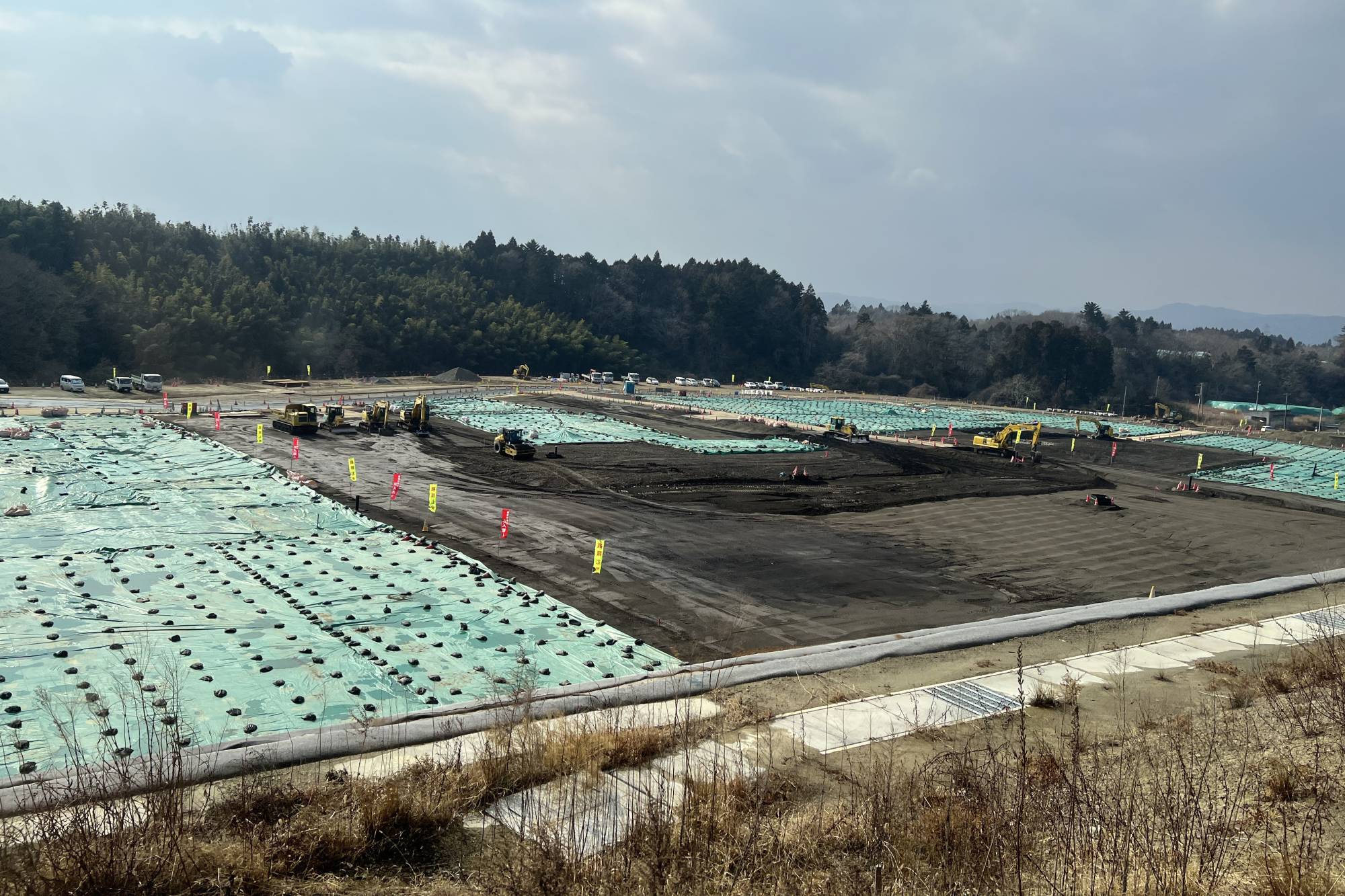The success of Japan’s plan to recycle some of the radioactive soil being stored in Fukushima in the wake of the 2011 nuclear meltdowns hinges on earning the trust of all parties involved, officials of the International Atomic Energy Agency said in Tokyo Friday after wrapping up an on-site review.
The nine-member delegation comprising IAEA officials and other international experts from the U.S., Britain and Belgium were visiting Japan this week to review Japan’s plans to reduce the volume of contaminated soil and recycle some of it. The soil is currently being stored in Fukushima, but its transfer out of the prefecture by 2045 is mandated by Japanese law.
The delegation toured the Nagadoro district in the village of Iitate, Fukushima Prefecture, where a pilot project is ongoing to demonstrate the safety of soil covered by non-contaminated topsoil to be used for farming. The experts also visited the Interim Storage Facility next to Tokyo Electric Power Co. Holding’s crippled Fukushima No. 1 plant. The facility has accepted radioactive soil that has been collected through years of decontamination work from across the prefecture and is conducting experiments to see whether some of the soil can be recycled for road construction.



